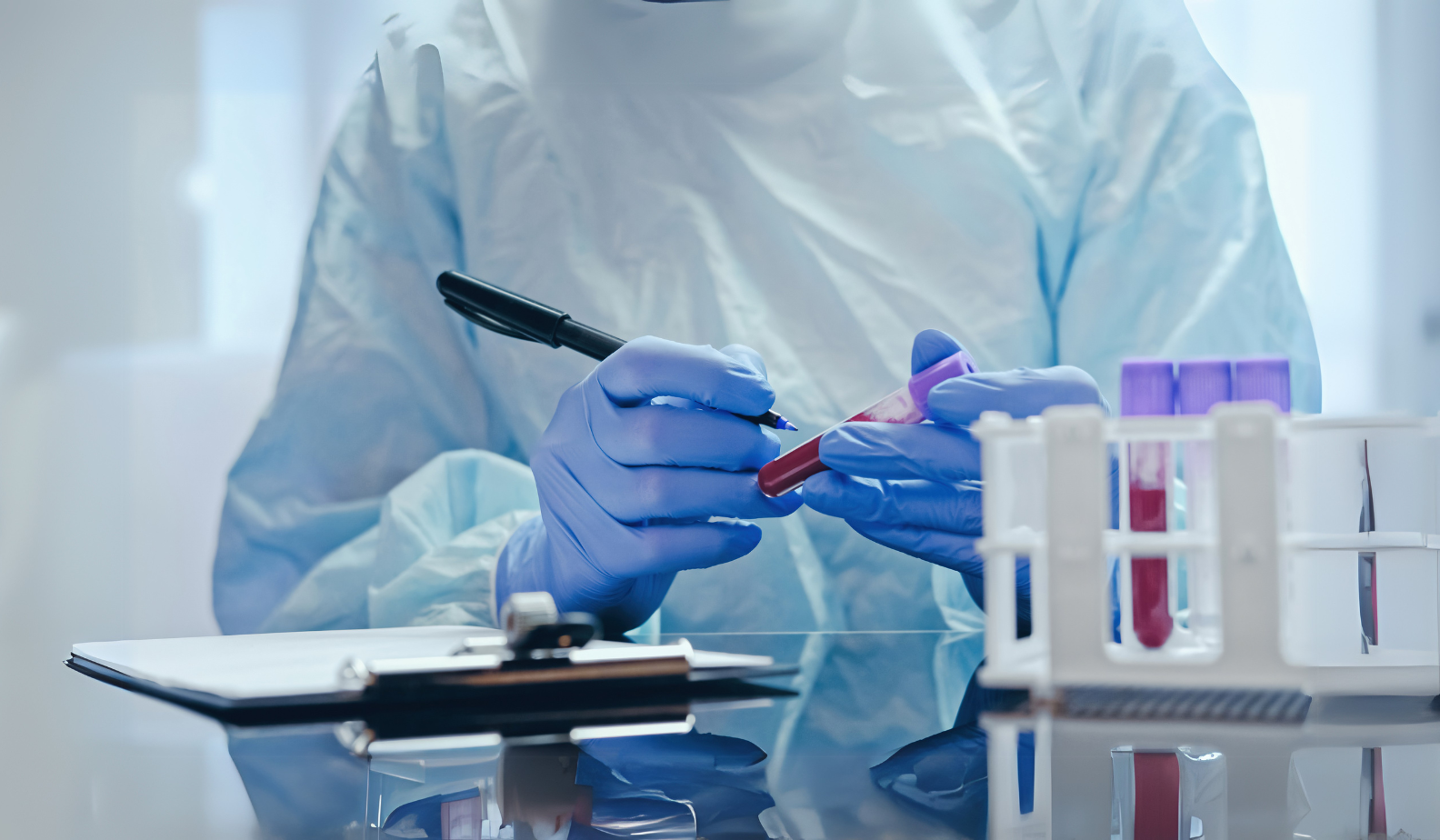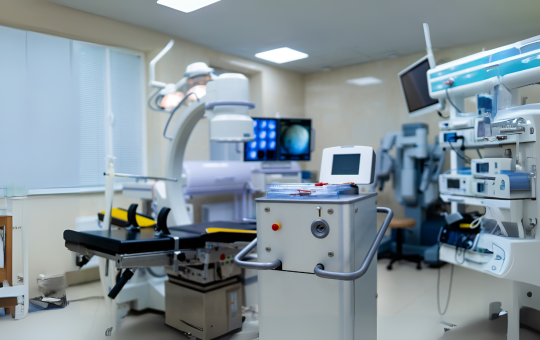
ISO/IEC 17025: Testing and Calibration Laboratories Lead Auditor
- Testing Laboratories: Any laboratory performing testing, including those in industries like pharmaceuticals, food safety, environmental testing, and more.
- Calibration Laboratories: Laboratories involved in calibration, ensuring measurement instruments are accurate and precise.
- Universities and Research Centres: Institutions performing testing or calibration as part of their research work.
- Governments and Regulatory Bodies: Organizations that perform regulatory testing or inspection.
- Inspection and Certification Bodies: Bodies performing conformity assessments that require testing or calibration services.
- Technical Changes: The new version includes revised technical requirements, ensuring that laboratories are using the most up-to-date methods and techniques.
- Updated Vocabulary: To better reflect modern practices and language in laboratory management and operations.
- Advances in IT Techniques: Incorporating newer technologies that impact laboratory practices and improve efficiency and precision.
- Alignment with ISO 9001: The revision aligns ISO/IEC 17025 with the structure and principles of ISO 9001:2015 to improve integration with broader quality management systems.
- Global Recognition: Gain internationally recognized certification in ISO/IEC 17025 auditing, improving your credibility and career prospects.
- Increased Competence: Develop the ability to conduct effective audits in testing and calibration laboratories, ensuring they meet accreditation standards.
- Practical Auditing Skills: Learn to assess compliance, identify gaps, and recommend corrective actions in laboratory systems and operations.
- Stay Current with Industry Standards: Stay up-to-date with the most recent changes to ISO/IEC 17025, including updates related to technology and IT.
- Improved Laboratory Operations: Help laboratories improve their operations, ensuring they deliver accurate, reliable, and competent results.
- Understand the core principles of ISO/IEC 17025 and its applicability to testing and calibration laboratories.
- Learn the updated requirements of the ISO/IEC 17025:2017 revision and how to apply them in audits.
- Conduct audits to assess a laboratory’s compliance with ISO/IEC 17025, identifying areas for improvement.
- Lead audit teams effectively and provide valuable feedback on corrective actions.
- Evaluate laboratory equipment, methods, and staff competence in line with ISO/IEC 17025 standards.
- Support laboratories in achieving and maintaining ISO/IEC 17025 accreditation.
- Introduction to ISO/IEC 17025
- Understanding ISO/IEC 17025 and its importance in ensuring accuracy and reliability in testing and calibration.
- Overview of the structure and key clauses of the standard.
- ISO/IEC 17025 Requirements
- Detailed examination of the technical and management requirements for testing and calibration laboratories.
- Key areas: competence of personnel, equipment calibration, testing methods, and environmental conditions.
- ISO/IEC 17025:2017 Changes
- Review of the revisions in the new version of the standard.
- Changes related to the alignment with ISO 9001, IT developments, and technical requirements.
- Planning the Audit
- Techniques for creating an audit plan tailored to ISO/IEC 17025.
- Preparing audit criteria, scope, and objectives.
- Conducting the Audit
- Gathering objective evidence and evaluating laboratory processes.
- Evaluating personnel competence, equipment calibration, and testing procedures.
- Managing the audit team and ensuring an effective audit process.
- Reporting and Non-Conformities
- Identifying non-conformities and areas of improvement.
- Reporting audit findings in a clear and actionable manner.
- Formulating corrective actions and supporting laboratories in implementing improvements.
- Achieving Accreditation
- Understanding the process of achieving ISO/IEC 17025 accreditation.
- Steps for maintaining ongoing compliance and quality assurance.
- Case Studies and Practical Exercises
- Real-world scenarios and role-playing exercises to practice auditing techniques.
- Learning how to assess a laboratory's competency and compliance with ISO/IEC 17025.
- Laboratory Auditor: Conduct audits of testing and calibration laboratories, ensuring compliance with ISO/IEC 17025.
- Quality Manager: Oversee quality assurance in laboratories, ensuring processes and procedures align with ISO/IEC 17025 standards.
- Laboratory Consultant: Provide consultancy services to laboratories seeking ISO/IEC 17025 accreditation or looking to improve their processes.
- Accreditation Manager: Manage the accreditation process and maintain ISO/IEC 17025 certification for testing and calibration laboratories.
- Experienced Trainers: Learn from experts with real-world experience in laboratory auditing and quality management.
- Comprehensive Curriculum: Receive detailed course materials covering every aspect of ISO/IEC 17025 and auditing.
- Global Certification: Obtain an internationally recognized certification that can advance your career.
- Interactive Learning: Participate in practical exercises and case studies, helping you to apply your knowledge in real-world scenarios.
- Ongoing Support: Receive post-course assistance to help you apply your new skills in your professional work.
Module 1: Introduction to ISO/IEC 17025
Understanding the purpose, scope, and structure of ISO/IEC 17025.
Key definitions and concepts in testing and calibration.
Importance of accreditation and global recognition.
Relationship between ISO/IEC 17025 and ISO 9001.
Module 2: Laboratory Quality Management Principles
Principles of impartiality, confidentiality, and competence in laboratory environments.
Structure and function of a laboratory quality management system (QMS).
Understanding technical and management requirements.
Roles and responsibilities in laboratory operations.
Module 3: ISO/IEC 17025:2017 Requirements
Detailed study of clauses and key updates in the 2017 revision.
Focus on competence, impartiality, and consistent operations.
Integration of risk-based thinking and preventive action.
Documentation control and records management in laboratories.
Module 4: Technical Requirements and Competence
Evaluating personnel qualifications and ongoing competence.
Assessing environmental conditions, sampling methods, and calibration practices.
Understanding measurement uncertainty and traceability.
Equipment verification, maintenance, and calibration requirements.
Module 5: Audit Principles and Methodology
Understanding ISO 19011 auditing guidelines.
Auditor ethics, roles, and responsibilities.
Types of audits: internal, external, and accreditation audits.
Competency framework for laboratory Lead Auditors.
Module 6: Audit Planning and Preparation
Developing an audit plan based on ISO/IEC 17025 requirements.
Establishing objectives, scope, and audit criteria.
Preparing checklists for technical and management requirements.
Coordinating audit teams and resource planning.
Module 7: Conducting the Audit
Conducting opening meetings and defining expectations.
Interviewing laboratory staff and reviewing technical documentation.
Observing testing and calibration procedures.
Identifying non-conformities and evaluating evidence.
Module 8: Non-Conformance and Corrective Action
Classification and documentation of non-conformities.
Root cause analysis and development of corrective action plans.
Verification of corrective actions and improvement tracking.
Managing follow-up audits and reassessments.
Module 9: Audit Reporting and Communication
Writing comprehensive and objective audit reports.
Presenting findings and recommendations to laboratory management.
Effective communication and feedback for improvement.
Maintaining audit records and confidentiality.
Module 10: Accreditation and Continual Improvement
Understanding the process for ISO/IEC 17025 accreditation and surveillance audits.
Aligning laboratory QMS with international best practices.
Continuous improvement strategies for laboratory performance.
Benchmarking laboratory operations for global competitiveness.
Module 11: Practical Exercises and Case Studies
Real-world examples of testing and calibration laboratory audits.
Simulated audit exercises for hands-on experience.
Peer discussions on measurement uncertainty and technical assessments.
Role-playing scenarios for laboratory compliance evaluations.
Upon successful completion of this course, participants will be able to demonstrate the following professional competencies:
Audit Leadership:
Plan, lead, and manage audits in accordance with ISO 19011 and ISO/IEC 17025 requirements, ensuring systematic, evidence-based evaluations.Technical Competence Evaluation:
Assess laboratory competence, including personnel qualifications, equipment calibration, and test methods.Risk-Based Assessment:
Apply risk-based thinking to laboratory processes, ensuring reliability and traceability of test and calibration results.Compliance Verification:
Evaluate laboratory operations against ISO/IEC 17025:2017 standards and identify non-conformities that impact data accuracy or impartiality.Corrective and Preventive Actions:
Recommend practical corrective actions, verify their implementation, and support continuous improvement initiatives.Audit Reporting and Communication:
Prepare professional audit reports that clearly communicate findings, recommendations, and required actions to management.Integration with ISO 9001:
Understand the alignment between ISO/IEC 17025 and ISO 9001:2015 for efficient management system integration.Technical and Analytical Competence:
Evaluate measurement uncertainty, method validation, and traceability of calibration results.Continuous Improvement Facilitation:
Promote laboratory excellence through ongoing evaluation and process enhancement initiatives.
This course is ideal for professionals involved in laboratory quality assurance, testing, calibration, and accreditation processes. It is specifically designed for:
Laboratory Managers and Supervisors: Responsible for ensuring laboratory operations comply with ISO/IEC 17025 standards.
Internal and External Auditors: Seeking to conduct audits for testing and calibration laboratories and achieve Lead Auditor certification.
Quality Managers and Compliance Officers: Overseeing laboratory quality systems and maintaining accreditation status.
Calibration and Testing Technicians: Involved in measurement, sampling, and data integrity processes.
Consultants and Advisors: Supporting laboratories in implementing and maintaining ISO/IEC 17025-compliant management systems.
Accreditation and Regulatory Personnel: Working with accreditation bodies or government agencies that oversee laboratory compliance.
Professionals Pursuing Accreditation Expertise: Aiming to advance their career in laboratory management, auditing, or quality control.
Our assessment process is designed to ensure every learner achieves the required level of knowledge, skills, and understanding outlined in each course unit.
Purpose of Assessment
Assessment helps measure how well a learner has met the learning outcomes. It ensures consistency, quality, and fairness across all learners.
What Learners Need to Do
Learners must provide clear evidence that shows they have met all the learning outcomes and assessment criteria for each unit. This evidence can take different forms depending on the course and type of learning.
Types of Acceptable Evidence
Assignments, reports, or projects
Worksheets or written tasks
Portfolios of practical work
Answers to oral or written questions
Test or exam papers
Understanding the Structure
Learning outcomes explain what learners should know, understand, or be able to do.
Assessment criteria set the standard learners must meet to achieve each learning outcome.
Assessment Guidelines
All assessment must be authentic, current, and relevant to the unit.
Evidence must match each assessment criterion clearly.
Plagiarism or copied work is not accepted.
All learners must complete assessments within the given timelines.
Where applicable, assessments may be reviewed or verified by internal or external quality assurers.
Full learning outcomes and assessment criteria for each qualification are available from page 8 of the course handbook.
Top Courses
No results found.
Related Courses
Let's Get in touch
Deleting Course Review
Course Access
This course is password protected. To access it please enter your password below:

